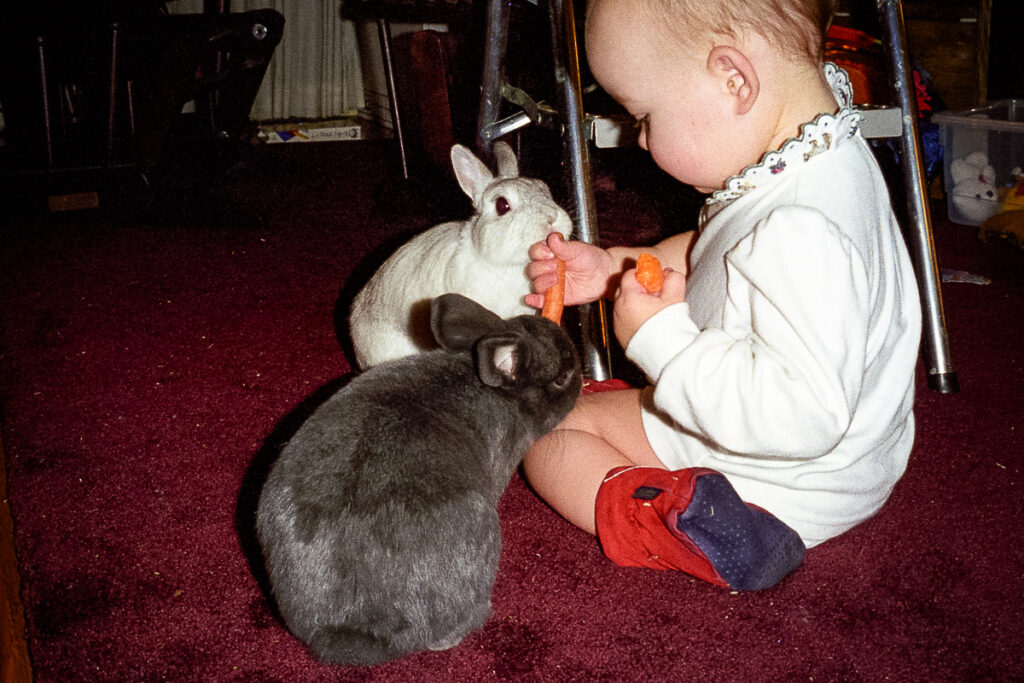Adopting Rabbits in Families: Balancing Child Upbringing with Responsible Pet Ownership.
Naturally, [rescuers] don’t want our beloved animals going into adoptive homes where they will be mentally or physically abused or neglected. Since statistically this is more often the case when small children are involved, we give preference to homes with mature adults. On the other hand, I can’t imagine a child growing up without animal companions. And what happens when [rabbit rescue groups] adopt to a “perfect” young couple who decide at a later date to add human babies to their family? Do we want these adopters to get rid of their bunnies? Certainly not. In fact, we feel we have made an error in judgment when a past adopter calls to say, “I want to return the bunny now that I’m pregnant.”
This is a disillusioning encounter, offset only by the numerous photos we get of toddlers and bunnies from parents who have cared enough to work things out in spite of the inconvenience. These parents are giving their children more than a collection of toys. By placing value on relationships with living things, they are laying the groundwork for one of the few things in life that is truly permanent. Material things come and go. Toys wear out and are thrown away and forgotten; but a friendship with a live animal is remembered long after the natural life of the animal. And what lives on in the child who has experienced such a relationship is the capacity to care.
We know it’s not easy to manage a mixed household of human and non-human dependants, but when parents find solutions rather than dispose of an animal for convenience’ sake and when gentle care is given to animal family-members, an important concept is communicated to the children. This is alive. This is valuable. You don’t throw it away.
©Copyright Marinell Harriman. All Rights Reserved. Republished with the permission of the author.
The Importance of Permanence was originally published in House Rabbit Journal Volume II, Number 7

